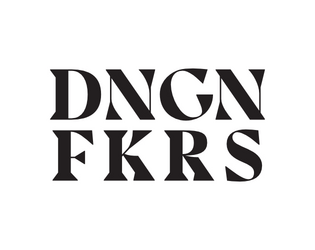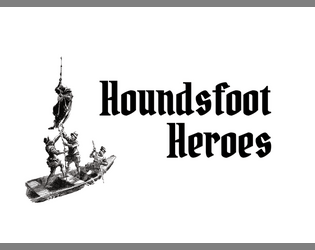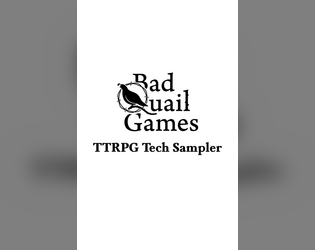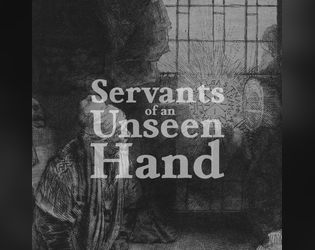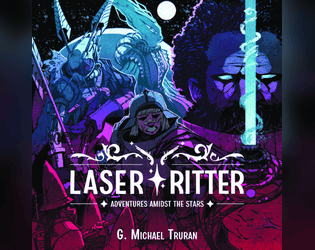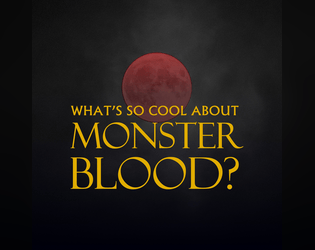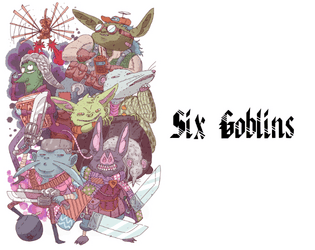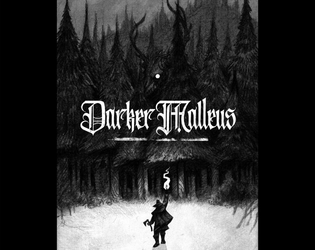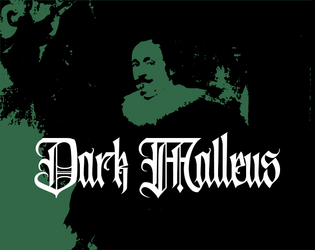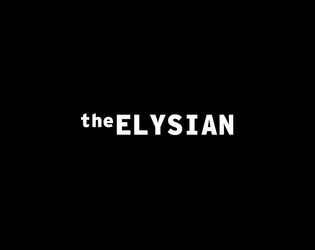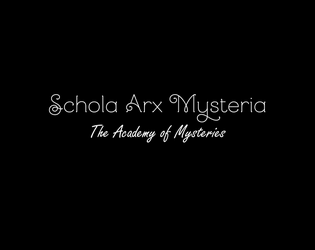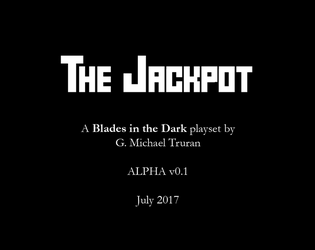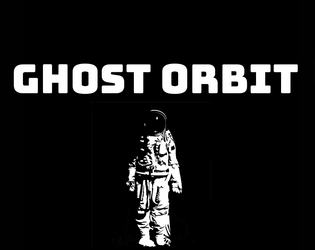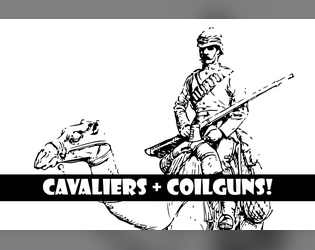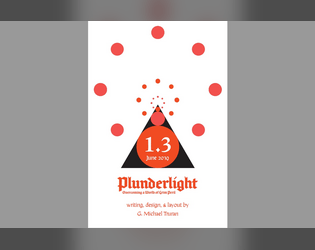Oh hey!
Bad Quail Games
Creator of
Recent community posts
Basically an open license:
Anyone may publish free or commercial material based on or declaring compatibility with DNGN FKRS without express written permission from the publisher, Bad Quail Games, as long as they adhere to the following terms:
If your product declares compatibility with DNGN FKRS you must include the following in your legal text and on any websites from which a commercial product is sold: [Product] is an independent production of [You or Your Company] and is not affiliated with Bad Quail Games.
Hi Kai!
Thank you for your interest.
There's a demo download that is rules complete. All it's missing from the paid version is the illustrations and the playbooks (and I'd be happy to send you the playbooks directly, just shoot me an email at the.bad.quail at gmail dot com).
Best,
G. Michael Truran,
Bad Quail Games
I didn't want to make Houndsfoot Heroes free, but also didn't want to charge people who participated in the jam, so here's a free download link that's good through July 11.
It's pay spacers receive for surviving a crisis. The bonuses for Psych, Soc, and Med are paid if a Spacer ends a crisis with a totally filled Calm, Face, or Vigor track, respectively.
So, for example, if a spacer totally fills their Vigor and gets physically incapacitated they get paid out 10 bonus scrip.
This is end of adventure stuff. The final payout. If you're running a scenario that lasts multiple sessions, it only pays out at the very end.
If you're running a follow up scenario with the same characters, they would completely clear their vitals and spend the scrip as they want. But, GHOST ORBIT is really intended for one shots. Crisis Pay is mainly there as a sort of score keeping mechanism.
Thank you so much! I'm glad you enjoyed these playbooks. When I wrote these I was so wired in to trying to make these work for a quasi-time travel story like The Peripheral, but every now and then I think about just building out a more trad cyberpunk city to toss them into.
If you wind up using these for a home game, I'd love to hear how it goes!
Hegemony Deserter has a one in four chance of having a maximum of +2 to its only weapon and doesn't start with a melee weapon for its automatic +2 so having the attributes tied to callings seems like a great opportunity to cull "trap options".
Among other things, the Hegemony Deserter load out will start with a Jagg Bayonet in the next draft.Does the new calling increase the max number of players?
Yes, and the changes overall make the game more friendly to having more than one of each Calling at the table. I still personally wouldn't want to play with more than four Laser-Ritters, but I prefer GMing for small groups, generally.
Hey Tr33Dw3ll3r! Thanks for reading!
1) Do advances that allow saga tokens to be gambled grant experience when the saga token is lost in a gamble? What about the counselor's good counsel ability, does the gambling player or the counselor add exp?
Whenever a Laser-Ritter spends a Saga Token, they mark XP including when they spend it to use an Advance. For abilities like Good Counsel where one player lends another a Saga Token, the player the Token originally belonged to marks the XP if it gets spent.
2) Does the Scoundrel special starwise have an action modifier added to its roll?
By default, no. It's meant to have a high likelihood of things having changed. It makes the Scoundrel someone who has a lot of stories about the way things were in a changing galaxy. That said, it won't break anything if the Scoundrel adds a modifier to the roll.
3) it seems like some callings get much more kit slots than others. Do Hegemony Deserters have to trade away their re-breather mask to have coms or a basic jag knife? Are the stats for being naked worse than the stats for clothes? It seems many Ritters could be incentivised to trade clothes for a other gear, it might be socially acceptable if they are walking carpet alien.
Yeah. Each Calling has different Kit needs and the different load outs weren't really composed with parity between Callings in mind.
A bit of character creation that, at the moment, lives on the playbook sheets but not in the book is:
Discuss what other Kit the group needs and would reasonably have: Hand Comms, Rations, etc. Ammunition and Fuel Cells are a given. Record them on your sheet.
If you're on a planet with a toxic atmosphere, it might make sense for everyone to have re-breathers. If you're palling around a space station Deep Space Nine style, maybe there's a locker full of void sleeves with each of your names on it.
As for swapping around major pieces of Kit like weapons and armor, I'd say that's something that has to be negotiated between the GM and Laser-Ritters.
Clothes are meant to be the baseline. The only thing you'd have less of when naked is dignity (maybe). For aliens with knife-proof fur or laser-reflecting carapaces? I might say "pick an Armor; you always have the traits of that Armor. You can do the same sorts of stuff you could with it, like Gambling, but instead of marking Condition, mark Pathos." But, it honestly might work fine to, mechanically, just use the game as written and describe the effects of your Armor as being whatever natural features your Laser-Ritter has.
All of that said . . .
There's an update with pretty significant reworks and adjustments in the pipeline. I don't want to give a definite release date, because last time I tried doing that I burnt myself out trying to meet it. Changes will include:
- The core rolling mechanic is being modified for a more traditional model of game where both the GM and other players roll dice.
- Saga Tokens are being depricated. Game abilities fueled by Saga Tokens will now be fueled by Pathos and Domains (a new skill-adjacent mechanic).
- A major change to Kit including reworked rules for Armor and additional rules for Weapons that gives more differentiation.
- Deep Sigh. A semi-optional currency system for Kit that will make it easier to eyeball how equivalent in value things are. Load outs will be balanced to be roughly equivalent in value to each other within Callings but not across Callings. This will make it easier to swap things in and out of load outs.
- Action Modifier spreads will be completely based on Calling. Origin and Lifepath will give some extra Domains.
- Calling Special Abilities are being rolled into the new Domain system.
- Calling Advances are being reworked as needed based on playtesting feedback and other changes to the game.
- A new Calling, the Teknos, is being added.
- Adversaries are being reworked to fit the new rules (they'll each still fit on a tarot size card, though).
Hey folks!
Last I checked, sale prices don't show up on the Jam submissions page. For the duration of the Jam, Plunderlight will be 66% off, dropping the price to $3.40 from $10.
Plunderlight is a game designed to evoke the sort of grimdark fantasy seen in Warhammer, while pointing the activity of play away towards changing the status quo instead of watching the world grind down the protagonists. It also democratizes setting creation and, depending on how the table answers the campaign creation questionnaire, could literally be about attacking and dethroning god.
Cheers,
G. Michael Truran / Bad Quail Games
Thanks for taking the time to comment!
A clarification on the Death rules. The vagueness may be a problem of how I framed it, and definitely something to consider if/when I tackle v. 1.2. But the actual rule, with some added emphasis is:
A spacer is only dead for sure when their Vigor fills up and they are left behind by their companions to face the threat, helpless.
The intent is that the Union Rep doesn't kill characters, their companions leave them to die.
That said, again, I definitely couched the rule in a way that might be too vague, and it's going on my list of tweaks for the next time I open up the hood.
I recently dropped DULL BLADES, a bundle of three incomplete Forged in the Dark games I've worked on.
It includes:
- The Jackpot, a cyberpunk/cli-fi playset inspired by William Gibson's The Peripheral. (Complete: five playbooks with unique mechanics).
- Schola Arx Mysteria, a game about teenage sorcerers at a boarding school on the eve of a cataclysmic war. Inspired mainly by The Magicians, Little Witch Academia, and Howl's Moving Castle. (Complete: a pretty rad freeform magic system).
- the Elysian, a pamphlet game about criminal operators navigating a mysterious underworld centered on the eponymous Elysian Hotel. Inspired by the John Wick films. (Complete: the Operator's Manual, a condensed player-facing rules pamphlet with integrated character playbook).
GHOST ORBIT, a game about things breaking in space.
https://bad-quail.itch.io/ghost-orbit
- only one move
- no playbooks
- no + or - modifiers
- everything is HP/harm
GHOST ORBIT is my entry for YourMoveJam. It has one move which is basically "act under risk of loss." The move is designed to focus attention on what's at risk of breaking whether it's a character's relationships, composure, equipment, or body.
The game itself is about disaster and horror in space. It handles anything from Ghosts of Mars to Apollo 13.
I've been playing AIRLOCK almost weekly since its first days of playtesting. The procedures for collaborative worldbuilding are great. The crew relationship mechanics are fantastic, especially for folk who otherwise have a hard time getting in character. And the mission-downtime structure produces wonderful contrast between frenetic action and quiet drama that I've struggled to accomplish with my own designs.
I'm not an authority on OSR-ness, but my submission to YourMoveJam is inspired by my experience with OSR (and adjacent) stuff: Ghost Orbit.
It's a game about things breaking in space. It uses the basic chassis of PbtA: 2D6 summed to get gradated results. But instead of anything modifying the roll, everything is HP. It makes for a game that's always very clear about what's at risk.
It's on sale for $1 for the remainder of YourMoveJam.


